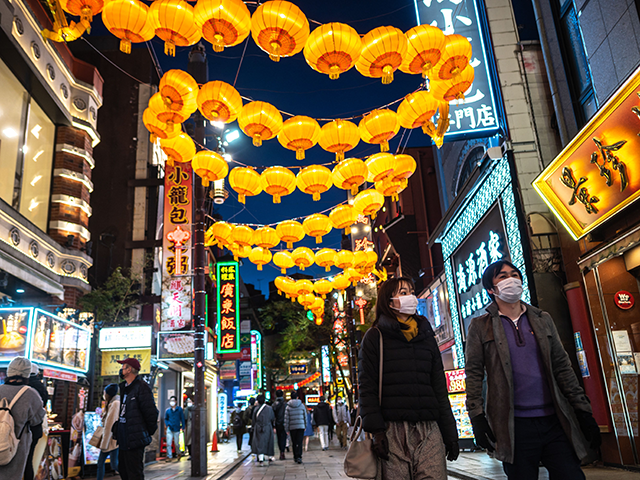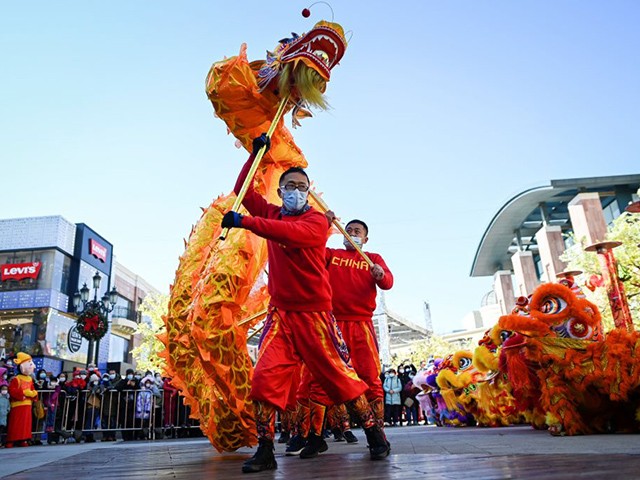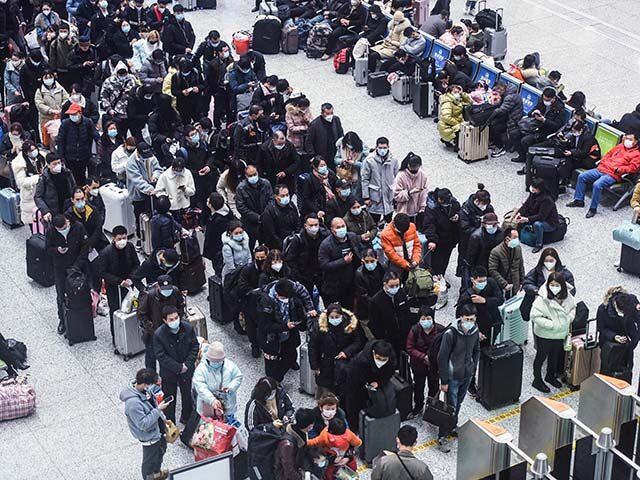China’s state-run Global Times on Wednesday quoted travel agencies that expect an “explosive surge” of “outbound tourism” during the “first post-pandemic New Year and Spring Festival holidays.”
Some of the most popular tour packages have already sold out, a month ahead of the big travel season.
FLASHBACK — Anti-Lockdown Protests Break Out Across China:
Online travel agencies reported 500-percent and 1,000-percent increases in bookings over last year:
Trip.com, China’s biggest online travel agency, told the Global Times on Wednesday that as of December 15, its New Year’s Day holiday outbound travel bookings have increased nearly five times year-on-year. Japan, Thailand, Australia, and the US are among the top destinations for outbound travel.
Fliggy, another major online agency, revealed that the booking volume of outbound tours has increased by some 10 times compared with 2022, with Japan, Malaysia, and New Zealand among the most popular destinations.
A number of new trends have been observed in this year’s winter outbound travels, thanks to the growing enthusiasm among Chinese people for skiing and hot springs, as well as for concerts and music festivals. The lifting of COVID-19 measures earlier this year has made it possible to extend the passion for travel from domestic to overseas destinations.
Chinese tourists are said to be booking trips everywhere from Japan to Finland and Russia, wherever mountains and snow can be found. Winter sports and concerts in Europe are also popular choices.
According to pollsters, the surge of interest in skiing was partially driven by the 2022 Beijing Winter Olympics, which were popular and influential across China. Skiing is also fashionable as a status-symbol activity among affluent Chinese, the government actively encouraged interest to pump up excitement for the 2022 Olympics, and winter sports have become trendy among young people.

People walk underneath festive lanterns in the Chinatown shopping street in Yokohama on January 16, 2022, ahead of the Chinese Lunar New Year of Tiger. (PHILIP FONG/AFP via Getty Images)
The more traditional Chinese vacation exodus to warmer destinations and beaches in places like Australia and New Zealand is underway even as the newfound mania for skiing grips travelers.
The Global Times noted especially big bumps for travel to destinations Chinese tourists can visit without obtaining visas. There are currently 47 countries Chinese nationals can visit without obtaining a visa. The destination that seems most abundantly supplied with mountains and snow is Russia.
Lunar New Year in 2024, the Year of the Dragon, officially begins on February 10. The Spring Festival travel rush is so huge that it has its own proper name, Chunyun. Until pandemic restrictions tamped it down, it was seen as the largest annual human migration, with millions of people traveling across China and beyond its borders.

A dragon dance team perform outside a mall in Beijing on February 16, 2021, on the fifth day of the Lunar New Year. (WANG ZHAO/AFP via Getty Images)
The Lunar New Year 2024 schedule became a topic of some controversy on Chinese social media in October because the official government holiday schedule listed the Spring Festival as running from February 10 to 17, but Chinese New Year’s Eve would be February 9.
New Year’s Eve is usually included as a day off and for many it is a travel day for visiting family. A grumpy hashtag complaining about “no holiday for Chinese New Year’s Eve” quickly racked up over 140 million views on Weibo, China’s version of Twitter. The government sought to mollify unhappy revelers by encouraging employers to grant February 9 as an unofficial holiday, and it ordered highway operators to waive tolls on that day to facilitate travel.
Those measures are potentially expensive, but Beijing clearly wanted a record-breaking Spring Festival travel season. Chinese state media reported a massive surge in searches for airline and train schedules as soon as the holiday schedule was announced.

COMMENTS
Please let us know if you're having issues with commenting.